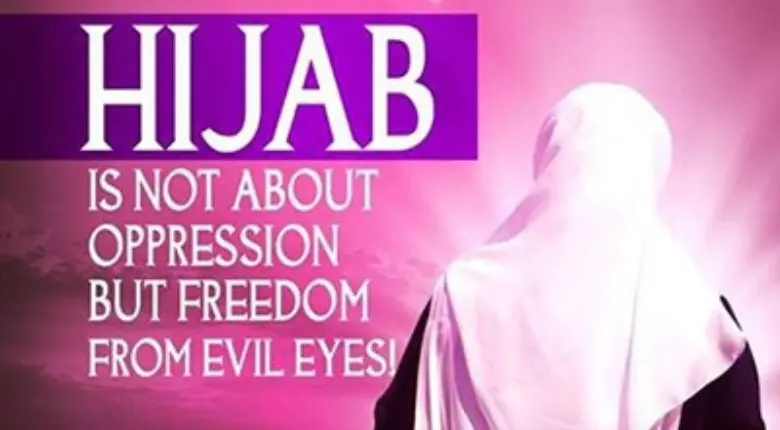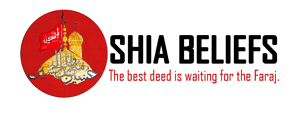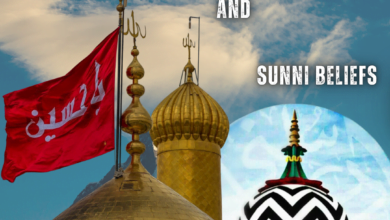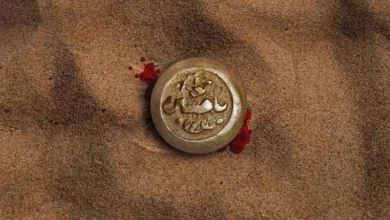Hijab’s Importance: What Does Islam Say About Hijab?

A brief discussion of the significance of Hijab will be presented in the context of relevant passages from the Holy Qur’an. God instructs men of faith to avoid looking at women inappropriately and to keep their privates covered so that they may remain clean. Indeed, Allah sees all that you do.
And command the women who believe to keep their eyes down and their privates covered, to wear coverings over their neck slits (Juyoob), to keep their hair covered (Khumur), and to never show their “Zeenat” to anyone other than their husbands. (Noor, 24:31, 32)
When it comes to the obligation of Hijab, the verse addresses males first. The second verse has several key phrases, including:
Zeenat: This is a piece of personal adornment, like a dress or a necklace.
Khumur: Scarves or coverings for the head.
Juyoob: Arab women typically did not cover their necks and wore clothing with modest neck slits. Here they are told to put the head coverings over their shoulders as well, lest anyone see their bare necks.
Another verse from Allah reads,
“O Prophet! Tell your wives, daughters, and the ladies of the believers to put on a robe (Jilbab) so that they can be easily identified and protected from harm (Allah is Forgiving, Merciful). (Ahzab, 33:59)
In this context, the word jilbab refers to an item of clothing worn to cover the head and shoulders; it is larger than a head cover but shorter than a shawl.
Disobedience to Allah’s mandate that women wear the garments that comprise their Hijab draws His wrath.
A lady should cover her entire body, including her hair, save for her hands and face. The dress’s general look should be unattractive, as it should not call attention to the wearer, and loose, as it should not disclose the woman’s shape.
When asked why she observes Islamic norms like fasting and hijab (head covering) and why she prays five times a day, one Ethiopian female student replied, “I am following since Allah had instructed us to follow therefore as a Muslim, it is our obligation to obey the laws provided to us by God.”
Why do Muslim women have to wear the hijab?
The media’s savage misappropriation of the woman’s bare body is on full display for all to see. And only Allah knows how far this uncultured conduct will go if it continues at its current rate.
But Islam mandated that women cover their hair and bodies in the presence of Non-Mahram (men other than their dads, grandfathers, brothers, husbands, sons, nephews, uncles, and brothers). The Quran is quite explicit about these matters.
The hijab is beneficial to women on a moral, social, and psychological level since it provides total protection. The hijab is not a recent phenomenon. As humans have altered God’s mandates over the ages at their discretion and for their own gain, so too have they done away with the requirement of hijab. Hijab regulations have appeared in many forms throughout history.
A Muslim lady adheres strictly to the hijab regulations out of reverence for the Quran and her beloved prophets. The hijab is never a hindrance for a lady who values the Quran, and she wears it with pride. While the hijab is mandated by Islamic law and hence continues to be worn today, it has all but died out in other faiths.
What are the benefits of hijab?
One of the benefits of hijab is that it brings women closer to God and away from materialistic men. Her purpose in appearing is to please God, not others.
Two, she doesn’t have to worry about how she looks or how much jewellery she wears, so she can live a pretty low-key lifestyle. She doesn’t make her husband’s life miserable so that she may have the most up-to-date clothes and accessories money can buy.
Three, her beauty is not only skin deep; people are drawn to her because of her charisma, intelligence, and skill.
Four, the possessive husband will feel even more secure in his marriage now that he knows his wife’s attractiveness is just for him.
Hijab’s Disadvantages
One, she must be on guard at all times to deflect the ignorant comments of others who, upon noticing her headscarf, make fun of her religion and her beliefs.
Since most men would rather hire women who are more attractive when dressed formally, she is the second choice for most occupations.
Three, outside the home, males are more interested in seeing a woman’s bare body than they are in seeing one covered by a headscarf.
Hijabi women are often called “backward people” in very direct ways. For her love of the Quran’s norms and regulations, she is willing to endure the hardships of hijab.
Where does it indicate that women are repressed when they choose modesty and liberated when they want to show skin?
When a woman reveals her body, a man’s lust or sexual urges are aroused immediately, and he looks at her and approaches her with these intentions, but his attitude towards women who choose to cover their bodies is one of natural respect rather than want.
I’m confused by the distinction between hijab-wearing women and non-hijab-wearing women.
A non-hijabi lady is one who conforms to Western culture’s standards of beauty and conduct, much to the satisfaction and joy of her male counterparts. They disregard the teachings of God’s prophets.
Hijabi women, like Hazrat Fatimah (S.A.), daughter of the Prophet Muhammad, cover their hair and bodies in obedience to God and his Prophet. We must follow her example and strictly adhere to hijab regulations.
Is the hijab a prison for women?
Women in Islam are free to pursue their education at whatever institution they choose, including the workforce. If a Muslim woman wants to run her own company, she has my permission to do so. The world needs the greatest films to instruct young people, and if Muslim women enter the area of directing and producing the films, the world will receive them. Therefore, Islamic law does not require women to wear the hijab or a pardah. Not the neat and tidy Hijab system, but the unfounded traditions of Western culture have severely confined women.
It’s not that women who choose not to cover their bodies and heads are backwards, and it’s not that women who choose to do so are liberated.
The Perspective of Science about hijab
The knowledge that is stored in our brains and nerve cells directs and controls the behavior and activities of humans. This data is taken in and processed by our senses, and then it is filed away in our brains as memories, thoughts, feelings, and ideas. The information that is stored drives processes that have a significant impact on one’s decision-making, which ultimately leads to one’s behavior and actions that are displayed to the outside world.
Surprisingly, the eyes are alone responsible for the transmission of around 80 percent of all sensory information to the brain. One can only begin to fathom the huge part that our eyes play in both the mental processes and behaviors that we exhibit.
The things that we take in via our eyes on a daily basis, such as watching a movie, playing videogames, or going about our everyday business, all play a significant part in influencing the thoughts, actions, and behaviors that we exhibit. If one does not exercise discretion when it comes to preventing lewd and improper situations from being observed, then one can be certain that this will result in unfavorable reactions and behavior that is beneath one’s dignity.
It should not come as a surprise to find that a society’s modesty and higher morals are deteriorating since the eyes are not shielded from seeing obscene or suggestive sensory information in a culture where this protection does not exist. This is the point when one must come to terms with the blessing of the hijab; both the physical hijab and the hijab of the eye are a heavenly blessing for believers that enables them to avoid potential traps and establish a healthy society.
The perspective of Islam about hijab
Mixed meetings are forbidden in Islam for the simple reason that they breach both the physical and social hijab to a significant degree. This is the fundamental reason that Islam prohibits mixed gatherings. Our esteemed Maraja Taqleed as well as our academics are all in agreement that it is forbidden to congregate with people of different genders.
According to a saying attributed to Imam Jaffer Sadiq (A.S.),
“Whenever the eye looks at anything prohibited, a knot of desire is knotted in the person’s heart,”
and this knot may only be loosened under one of two circumstances: either by weeping out of pain or regret in genuine repentance, or by obtaining ownership of what one coveted and looked at. It is quite clear that women who do not observe the physical hijab have the ability to attract the prohibited gaze of members of the opposite gender. Indeed, the warnings given by our infallibles on the repercussions of a lack of observance of the hijab are spot on.
A lack of modesty in a society has the capacity to restrict its evolution and corrupt it by diverting minds into superfluous or immoral ideas and behavior. In addition, lack of modesty in a community has the potential to cause physical harm.
Every community and nation makes the decision to enforce some sort of uniform clothing standard on its members. What could possibly be a more appropriate standard of clothing than the Islamic hijab? Is there anything that may top the modesty requirements outlined in Islam from the perspective of a person who believes?
To summarize, the lovely blessing of hijab goes beyond only being a personal choice and instead has an effect on the larger benefit of society as a whole. By making the decision to wear the hijab, Muslim men and women not only raise their personal spirituality to a higher level, but they also contribute to the raising of our social fabric and help us all be ready for the return of our expected Imam (AS).




